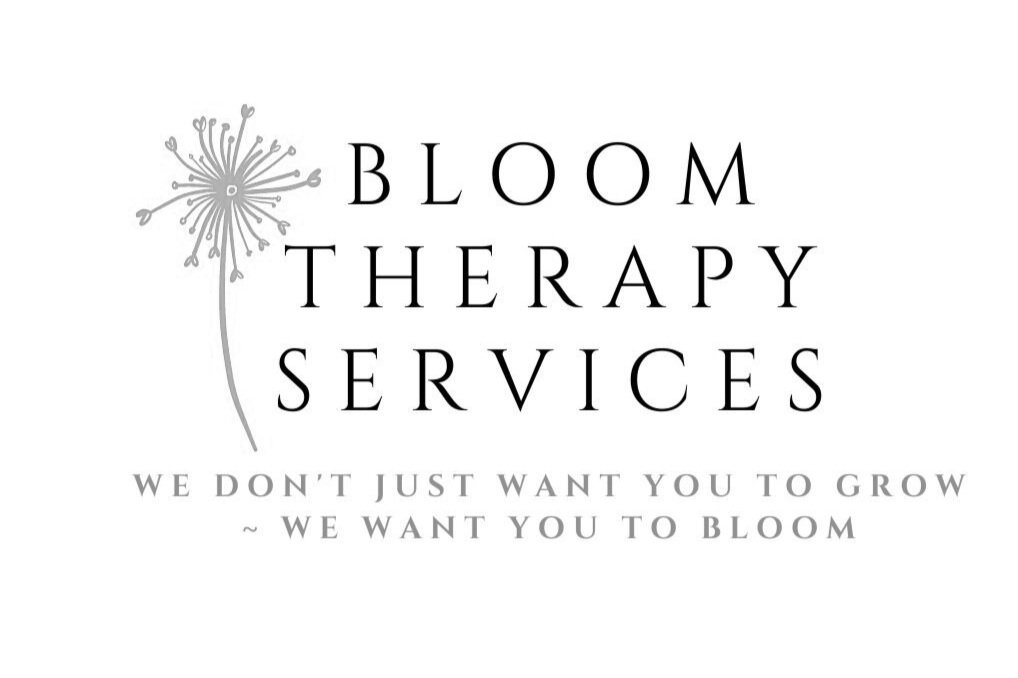Healthy Eating Basics Bootcamp (Online!) - Open for Enrollment!
Last summer, we ran an online Bootcamp for healthy eating and.... we're doing it again! The program starts in March 2017 (times/dates TBD). Save by signing up for the Early Registration beginning now through February 28th!
Hello everyone!
Last summer, we ran an online Bootcamp for healthy eating and.... we're doing it again! The program starts in March 2017 (times/dates TBD). Save by signing up for the Early Registration beginning now through February 28th!
If you are:
Confused about conflicting dieting advice and have tried multiple diets with little success.
Turning to foods during emotional times, such as: stress, sadness, loneliness, boredom, frustration and more.
Unable to determine your body's hunger signals and eating just because "it's time to eat" or because "there's nothing else to do."
Eating out multiple times a week because you don't know what to cook at home, feel like there's not enough time to cook, or you're too tired to cook.
Despising going to the grocery store several times a week and would like to go less (how does twice a month sound?).
Struggling with motivation to stick with your goals, a change in diet or an exercise routine.
Setting the same get healthy goals every year, only to give up on them after a couple of weeks.
Then this program is for you!
The program is comprehensive, including some of the most researched, science based strategies for overcoming problematic eating issues, changing behaviors and developing life-long healthy habits.
Many individuals have invested hundreds of dollars in trying multiple diet plans and numerous workout strategies, only to end up right where they started - feeling FRUSTRATED, DISAPPOINTED and DEFEATED.
I often tell my clients, it's probably not the diet plan or the workout routine that hasn't worked, but perhaps your ability to stick with these plans for the long-haul. Be honest with yourself and ask if you really GAVE IT YOUR ALL before you gave up? If not, what went wrong? What was the reason(s) you weren't able to finish the program? Was it too strict? Did you get bored with the food choices? You couldn't give up your carbs? The workouts were too hard? The plan was too long?
Research has found most people trying to make changes to their health, weight or diet, need to refocus their energy on developing a different mindset, rather than the food or exercise. I often tell my clients, motivation is a myth. It's more about organizing your life and your thoughts into a way that makes transition and adapting new habits as easy as possible. That's what the Healthy Eating Basics Bootcamp is designed to do!
This program is PACKED with all the strategies you need towards making changes in your health journey. We'll be covering mindful eating, goal-setting, nutrition basics, grocery shopping, meal planning, emotional eating, and TONS of healthy tips along the way.
Here's a look at what's included in the 6 week program:
5 LIVE presentations hosted by myself on the topics of Nutrition Basics, SMART Goal Setting, The Games Grocery Stores Play, Stress-Free Meal Planning and Mindful Eating vs. Emotional Eating.
5 Pre-Recorded videos where I chat with you about: Grocery Haul -Exactly What I Buy at the Store, My Favorite Healthy Living Products, My Meal Planning Routine, What I Eating in a Day and A Guided Grocery Store Tour.
In depth lesson plans emailed straight to your Inbox weekly.
Homework assignments and handouts to help you in implementing the program's lessons into your own life.
A weekly Action Challenge in which you will be able to incorporate lessons from the program into your own life, while also joining in community support for the challenge through the FB community.
A Tracking Sheeting so you can monitor and track your progress.
A super secret Facebook group in which you and all the other participants can share ideas, motivation and share progress on weekly challenges.
A weekly Q & A session with myself to answer any questions or concerns you have about the program material, as well as any help you may need in implementing your goals.
Tons of great BONUSES, including: Weekly prize drawings, FREE download of 25 Healthy Hacks from an ED Expert, discounts from loved brands, such as Reebok and Iherb, 1 week free trial of the Madden Wellness Membership and anything else I can think to throw in there along the way!
Space for the program is limited. You can signup now for the Early Bird discount through February 28th. After that deadline, the price increases. The program begins in March (exact time/dates TBD).
I will leave you with an Intro Video I made about last Summer's program. Please keep in mind this video also contains previous pricing that was only available for the first group and is NOT the current price. I wanted to share the video in hopes that maybe it can answer any questions you might have, as the content of the program will be close to the same. If you have any other questions about the program, please contact me and I would be glad to answer!
Amber Madden is a Licensed Counseling Associate specializing in Eating Disorders and Obesity. She is the Clinical Director at Madden Wellness Counseling, PLLC. She utilizes her skills in addiction to assist her clients in with Binge Eating, "food addictive" patterns, and develop a positive approach to overall health and wellness. She has a passion for assisting clients in achieving their health goals and learning to love nutritious foods and exercise. For more information visit www.maddenwellnessky.com . V
YOU MAY ALSO ENJOY....
MADDEN WELLNESS SERVICES
FOLLOW ME ON INSTAGRAM
Childhood Obesity - 3 Family Interventions
Childhood obesity presents many health problems for youth, including early onset of puberty, hypertension, high cholesterol levels, abnormal glucose tolerance and risk of obesity as an adult. In addition to the health risks involved, children with obesity also face social stigma.
With the growing epidemic of obesity rates in the U.S., also comes the growing concern for childhood obesity. For children and adolescents aged 2-19 years, the prevalence of obesity has remained fairly stable at about 17% and affects about 12.7 million children and adolescents for the past decade (http://www.cdc.gov/obesity/data/childhood.html).
Childhood obesity presents many health problems for youth, including early onset of puberty, hypertension, high cholesterol levels, abnormal glucose tolerance and risk of obesity as an adult. In addition to the health risks involved, children with obesity also face social stigma. In their school setting, they are bullied and excluded, which sometimes leads to low self-esteem, body image issues and withdrawing from social interactions.
Many factors influence and perpetuate childhood obesity, including relentless food advertising and less productivity initiatives through physical education in the education system. However, more and more research indicates a significant factor in childhood obesity rests with what occurs at the family level. Parental attitudes regarding diet and exercise, family lifestyle choices and an overall apathy regarding obesity as a health concern can be substantial contributors to childhood obesity. Prevention of childhood obesity is critical and should begin as early as possible.
Although clinical intervention is sometimes necessary, there are a number of steps parents and families can take to reduce the risks of childhood obesity through early intervention and prevention.
Incorporate health as a priority. The predictive factor in childhood obesity is parental obesity, meaning the children of overweight parents are most often overweight themselves. Children look towards their parents for guidance and as a means of learning what is acceptable behavior both in lifestyle decisions and making healthy choices. Educate your children regarding the importance of eating a balanced diet and getting exercise every day. Incorporate lessons to explain the importance, emphasizing longer life and staying healthier. Prepare and integrate healthier and more nutritious options into family meals. And remember – Practice what you preach! They will not take you seriously if they see you doing the opposite of what you’re telling them to do.
Limit sedentary activities. A survey of more than 1,600 U.S. parents was conducted by the YMCA of the USA. The survey showed that that 74% of children between the ages of 5 and 10 do not get enough exercise on a daily basis, based on the 60 minutes of daily physical activity recommended in the government’s Physical Activity Guidelines for Americans. In addition, it showed about 50% of children 5-10 are watching at least two hours of TV a day more than five days a week, and spending an hour in front of a computer three days a week (http://www.webmd.com/children/news/20110414/most-young-kids-dont-get-enough-exercise).
These results indicate many parents are not placing an important enough focus on physical activity nor are they enforcing limits for their children’s “screen-time” activities. Parents need to incorporate activities at least 3-4 times a week, an hour each day. In addition, they should place limits on their children’s screen-time activities. Parents are encouraged to view these actions just as they would any other action for their children’s health. For example, it is routine for children to receive vaccinations from illness and disease, even if they do not like being stuck with a needle. Children should be held accountable for their time spent on technology sources because it is imperative for their long-term health, even if they do not like it.
Consider a Family Based Intervention (FBI) program. A research study initiated a Family Based Intervention program where 38 pairs of parents and their children were enrolled in a 12 – 16 week intervention program. Families were guided to create short- and long-term goals, as well as learn new skills like how to track their eating. Out of the 38 pairs, 24 completed the program and lost weight or showed improvement (Nauert, R., 2014).
FBI programs are a great way to seek professional services, but at discounted and affordable rates. Costs are usually divided among group participants. To participate in a FBI program, check with local clinics, health departments, YMCA’s and schools to see if there are similar programs offered in the area.
In addition, Madden Wellness Counseling also offers services for families and children regarding obesity and other childhood problematic eating patterns. You can find out more on our website.
References
Nauert PhD, R. (2014). Focusing on Families To Tackle Childhood Obesity. Psych Central. Retrieved on July 16, 2015, from http://psychcentral.com/news/2014/06/16/focusing-on-families-to-tackle-childhood-obesity/71273.html .
Amber Madden is a Licensed Counseling Associate specializing in Eating Disorders and Obesity. She is the Clinical Director at Madden Wellness Counseling, PLLC. She utilizes her skills in addiction to assist her clients in with Binge Eating, "food addictive" patterns, and develop a positive approach to overall health and wellness. She has a passion for assisting clients in achieving their health goals and learning to love nutritious foods and exercise. For more information visit www.maddenwellnessky.com .










































